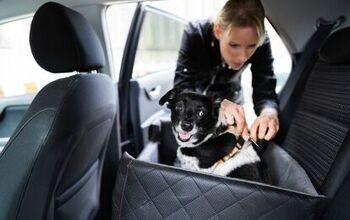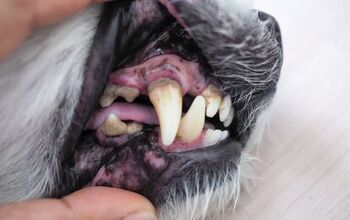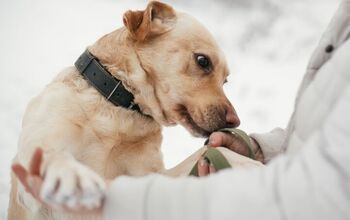Study: Dogs Use Scent To Detect Low Blood Sugar In Diabetics [Video]

From dogs that can smell cancer to those that can detect epileptic seizures before they happen, our canine companions have an amazing sense of intelligence that we’re only just beginning to understand. Now, researchers at the Cambridge University in the UK believe that dogs also use their uncanny sense of smell to detect low blood sugar in type 1 diabetics.
Having a service dog detect oncoming hypoglycaemic episodes (or ‘hypos’) in humans isn’t an entirely new phenomenon — we’ve known for some time now that some dogs can be trained to do this — but until now, scientists never understood why.
Hypos can be very dangerous for diabetics, and can lead to problems such as shakiness, dizziness and fatigue. If left untreated, it can also cause seizures and unconsciousness. For some, these episodes can occur with very little advance warning.
The team of researchers studied a group of 8 women in their 40s, all with type 1 diabetes. Under controlled conditions, they gradually lowered the womens’ blood sugar, using a technique known as mass spectrometry to measure levels of a chemical known as isoprene in the test subjects.
The team found that levels of isoprene rose significantly as blood sugar dropped. They believe that this may be the reason dogs can detect changes in blood sugar — our furry friends can actually smell the elevated levels of isoprene in our breath. If trained correctly, service pups can learn to alert type 1 diabetics of an oncoming hypo, saving many trips to the hospital (and likely, lives) in the process.
These findings also have positive implications for future research.
“Humans aren’t sensitive to the presence of isoprene, but dogs with their incredible sense of smell, find it easy to identify and can be trained to alert their owners about dangerously low blood sugar levels,” says Dr. Mark Evans.
“It provides a ‘scent’ that could help us develop new tests for detecting hypoglycaemia and reducing the risk of potentially life-threatening complications for patients living with diabetes.”
To learn more about the study and see Magic, one of these amazing service dogs in action, check out the video below.
[Source: Science Daily]

Christina Peden is a lifelong animal lover and avid wordsmith. She lives in Toronto with her boyfriend Ryan where they are proud pet parents to puppy, Matilda and cat, Oscar. In her spare time, she can be found enjoying Toronto, Canada's all-too-short patio season, taking advantage of the city's numerous parks or curled up with a good book.
More by Christina Peden























